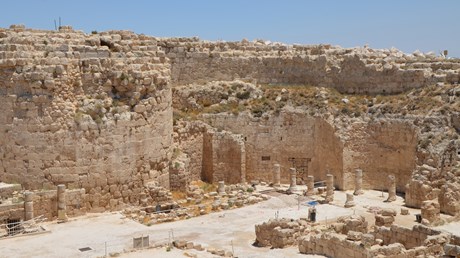A glimpse at the important excavation work revealed this year.

Each year, on an almost daily basis, archaeological discoveries help us better understand the Bible and affirm its details about people, events, and culture.
Below are the top excavation findings reported in 2018 which have increased our knowledge of the biblical world and the early history of Christianity.
10) Biblical “Yerushalayim” inscription on ancient column
Archeologists uncovered an inscription on a pillar in an excavation of an ancient potter’s village, near the western edge of the modern city of Jerusalem earlier this year. The inscription includes the word, “Yerushalayim,” the name of Jerusalem written in Hebrew, and was dated to 100 B.C.
The potter’s village no doubt served the many pilgrims who were on their way to the Temple in Jerusalem, just a few miles to the east. It calls to mind the potter’s field in Matthew 27:7 that was bought by the priests with the money Judas took for betraying Jesus and then returned.
9) Clay pomegranate found at Tel Shiloh
Tel Shiloh, the site where the Jewish tabernacle and the Holy Ark were located between the Israelite conquest and the building of the Temple in Jerusalem, yielded an unusual clay pomegranate in an excavation this year. In the Bible the pomegranate is a common temple decoration (1 Kings 7:18; 2 Kings 25:17), and small pomegranate decorations hung from hems of the robes of the priests (Ex. 28:33).
8) Esarhaddon inscriptions found at the shrine of Jonah
In 2014 ISIS blew up the shrine of the tomb of the prophet Jonah in the Iraqi city of Mosul. The now-destroyed Muslim shrine had been situated on a mound, where archaeologists soon found the remains of a palace of the Assyrian King Esarhaddon. The king’s name is referenced ...
from
http://feeds.christianitytoday.com/~r/christianitytoday/ctmag/~3/A1zgFLD8eXk/biblical-archaeology-top-10-discoveries-2018-israel.html
No comments:
Post a Comment